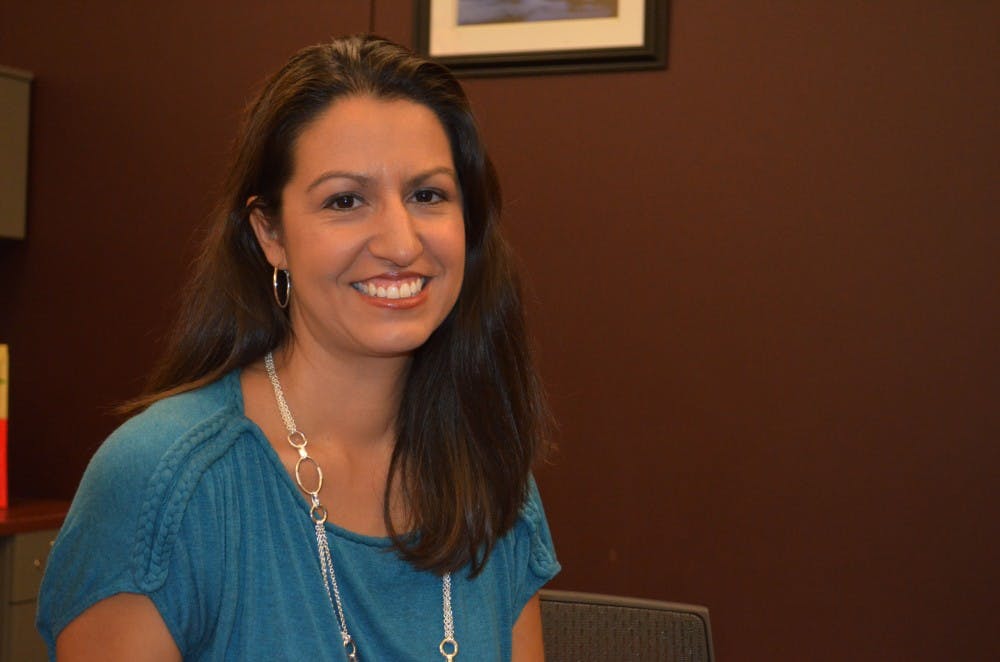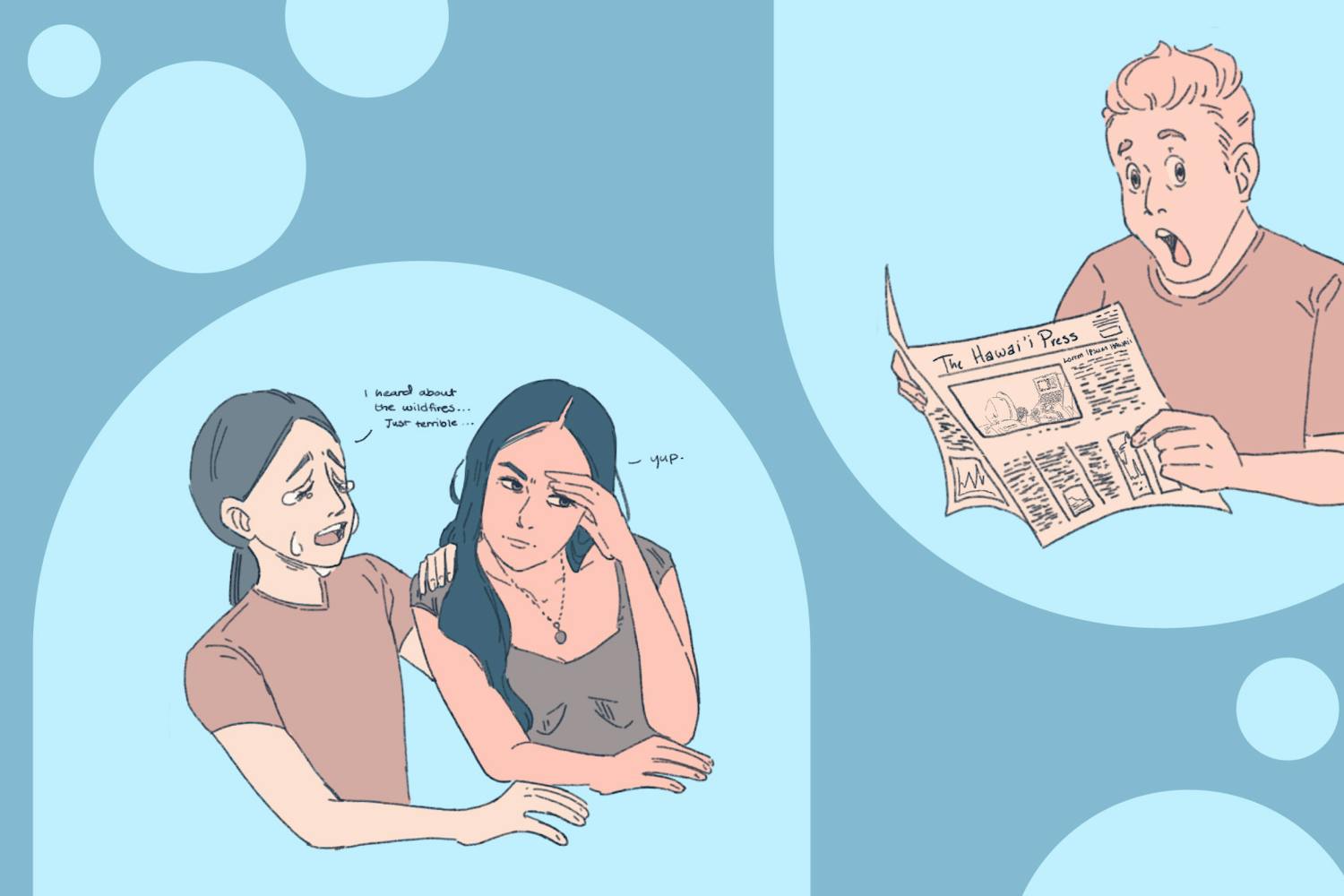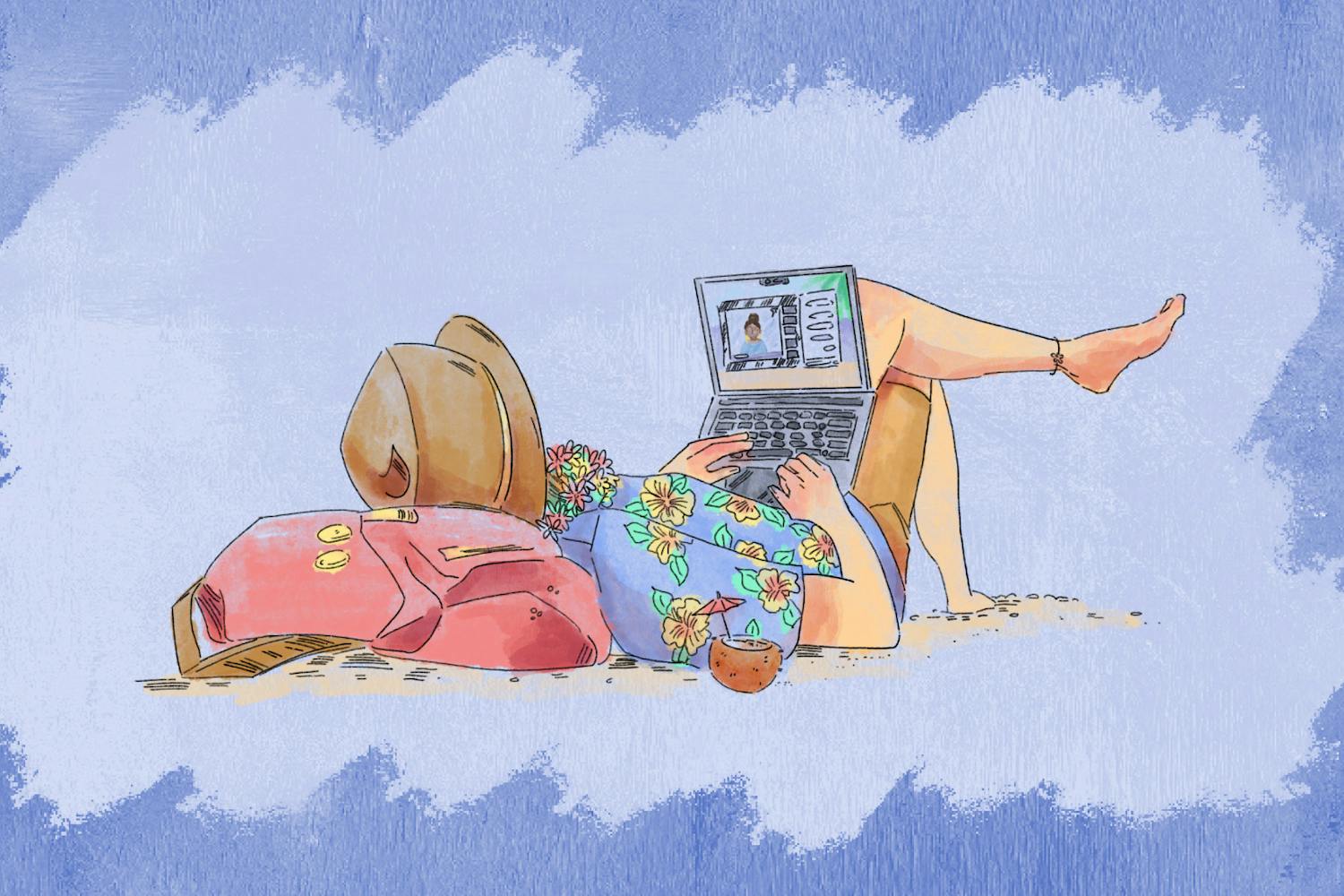 Carmen Estep, member of The Body Project Photo by Luu Nguyen
Carmen Estep, member of The Body Project Photo by Luu NguyenPsychology senior Carmen Estep attempted to pursue modeling between the ages of 15 to 20. She remembers a casting call where a woman told her she was too heavy to be in the fashion line. The experience took a severe toll on her self-image.
"I didn’t realize that it had such a negative effect on my self-esteem until The Body Project," Estep says.
Through the program, Estep was able to find her voice.
"I didn’t challenge what she was saying, but now I would say ‘you know, I love my body size and I’m not going to change what I look like to be in your fashion line,’" Estep says.
The Body Project has helped her improve her lifestyle.
"I’ve actually quit modeling altogether and I’ve decided that I wanted to live a more healthy lifestyle because it was so emotionally straining," Estep says.
She also learned to have a more positive outlook on life.
“It’s definitely changed my view of myself… and my self-confidence," Estep says. ”I’m just an overall happier person because of it. I hope that women that go through the project feel the same way.”
The Body Project has seen many stories similar to Estep's from women who have gone through the program.
It is a program that allows women to come together to connect and discuss their body issues in a comfortable environment. Whether it be social comparisons or negative body talk this project addresses these issues as well as how society influences them.
 Marisol Perez, associate professor at ASU and founder of The Body Project at the university. Photo by Luu Nguyen
Marisol Perez, associate professor at ASU and founder of The Body Project at the university. Photo by Luu NguyenMarisol Perez, an associate professor of psychology at ASU, brought The Body Project to the university after doing the program at Texas A&M; University.
"What we do is by bringing women together, we not only tackle the social comparison parts of it but also the pressure, and we give them a platform for which they can discuss these issues that’s absent," Perez says.
The Body Project is supported by 100 universities in the United States; however, it hasn’t been done on “large scale,” according to Perez.
"This is kind of the evolution of the program itself,” Perez says of ASU's implementation of the program.
It is running in the residence halls and sororities at ASU, but the group is still looking to expand.
“We’re equipped to run 300 women a week and we hope to get to that point,” Perez says.
The Body Project consists of two sessions. In the first session, the women address their personal behavior.
“In the first workshop, we really focus on you as an individual,” Dr. Perez says. “So what are the things you do that really perpetuate body dissatisfaction and unhealthy behaviors?”
The second session then focuses on body activism. Each participant comes up with a way that they can better their environment.
“An example of what they might do in that piece is a ‘fat talk pledge’ so stopping fat talk,” Perez says.
Not only do the women come up with ideas individually, but they also create some as a group.
“One group decided we’re going to give compliments to people we don’t know,” Perez says. ”So how awesome does it feel to be walking across campus and someone you don’t know comes up to you and gives you a compliment? It makes your day.”
The program not only addresses women’s body issues, but it also builds female leaders.
“So a great way to tackle women’s issues at any community is really to build female leaders, so that’s why we have a peer leader component,” Perez says.
The Body Project currently has 52 peer leaders who have gone through a 16-hour training session and run about six groups during a semester, according to Perez.
Estep is one of the peer leaders who has promoted body activism around campus and on social media.
According to Estep, one tool she has used to promote body activism is social media. Recently, she posted a photo on Facebook of herself without any makeup on and encouraged other women to do the same.
“You don’t see women’s natural beauty, so I think it encouraged a lot of girls to just be themselves and not have to cover up so much,” Estep says.
Psychology senior Jourdan Klingbeil has also found a way to promote body activism around her family and friends.
Klingbeil says she has the ability to recognize when others make negative body comments and in turn she makes them say “five positive things about their body instead of negative things.”
Along with the many methods already used to show body activism, The Body Project will be launching a Taking Back Beauty campaign.
According to Perez, many Body Project groups recognized that society needs to learn how to compliment and recognize women’s natural beauty, which sparked the idea.
The campaign involves women who will post natural pictures of themselves along with a personal accomplishment to the Taking Back Beauty campaign blog. Others will be allowed to comment on the photos with compliments; however, the comments will be moderated, Perez says.
According to Perez, this campaign is “shaping people’s behavior to compliment.”
“It's really helped me a lot and it's helped me notice how unique everyone else is in their bodies and not judge them on it, but celebrate how unique they are,” Klingbeil says.
Reach the writer at shyde1@asu.edu or via Twitter @ShelbyHyde.




